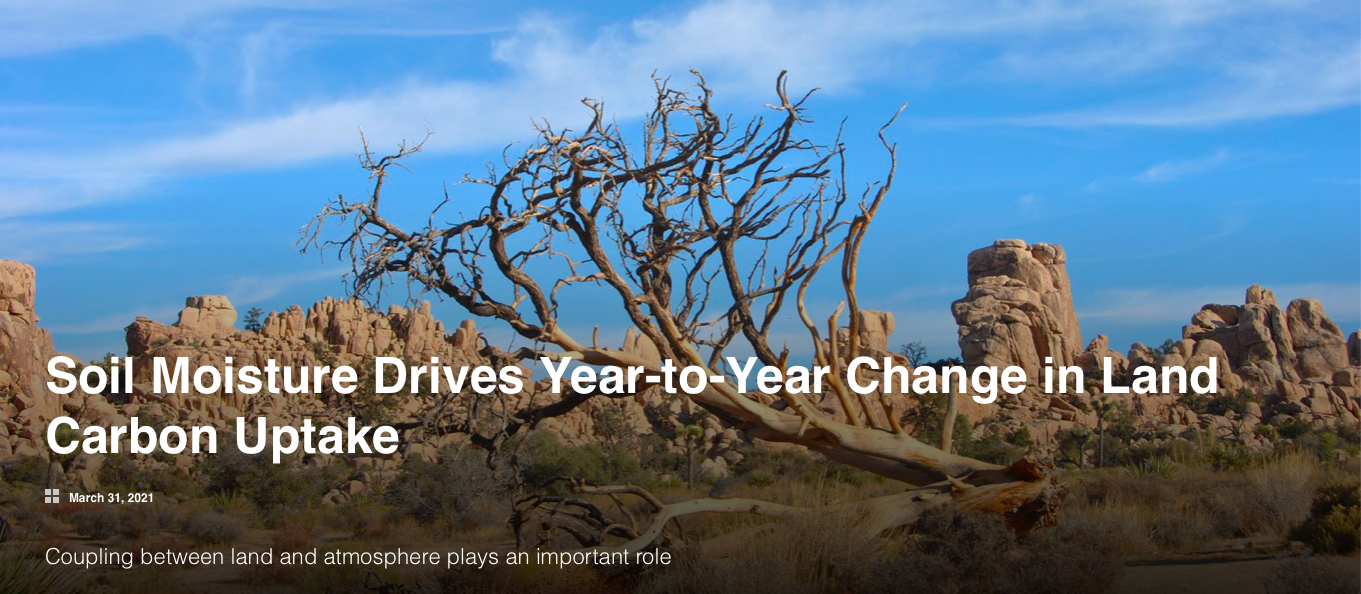Soil Moisture Is Key Factor In Carbon Uptake Variability From Land Ecosystems
8 Apr 2021 by The Water Diplomat
PASADENA CA, United States

Soil moisture has been identified as a leading factor in the variability of land carbon uptake each year, according to new research
The research, published 1 April, found that soil moisture causes changes to the temperature and humidity near the surface of plants which affects the photosynthesis process and in turn alters carbon absorption rates from land ecosystems.
The findings by the California Institute of Technology were derived from two different simulations: one that was based on a hypothetical environment in which soil moisture levels remained constant in the absence of floods and droughts, and one that consisted of normal Earth-like conditions.
In the hypothetical simulation, the plants fixed the same rates of carbon dioxide emissions, whereas in the Earth-like simulation, the absorption rates were inconsistent
Vincent Humphrey, lead author on the research paper, said: “We can say with confidence that soil moisture plays a dominant role in the year-to-year change we see in the amount of carbon taken up by the land."
However, the research findings also indicate that in the hypothetical simulation there was less chance of elevated temperatures and reduced humidity than in the Earth-like world. This illustrates how land characteristics, otherwise knowns as land-atmosphere feedbacks, strongly affect the atmosphere near the Earth’s surface which in turn causes changes to the ability of land ecosystems to fix carbon.
Changing soil moisture accounted for 25 Percent of the year-to-year variability in land carbon uptake, whereas the rest was from atmospheric changes in temperature and humidity.
Settling the debate regarding the cause of land carbon uptake variability, Humphrey said: “Until you know that the soil moisture has influenced the temperature and that's why you see both of them having an effect, you have the impression that there is a conflict between the results. This finally cools down the debate. Everybody's right".
